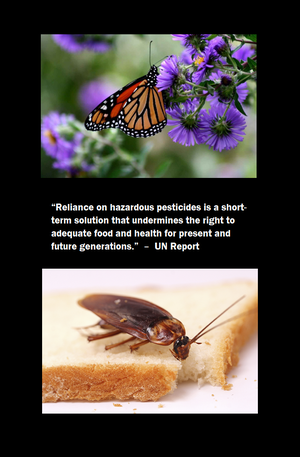Global Insect Decline and More Pests: BBC
Global Insect Decline and More Pests: BBC

Read the article from BBC News about scientific research that reports a decline in populations of larval insects land and some aquatic insects.
Matt McGrath is the environment correspondent for BBC News.
Read the study “Worldwide Decline of the Entomofauna: A Review of Its Drivers” from Biological Conservation.
Read the UN Report of the Special Rapporteur on the Right to Food, which addresses the dangers of pesticides: “Pesticides cause an array of harms. Runoff from treated crops frequently pollute the surrounding ecosystem and beyond, with unpredictable ecological consequences. Furthermore, reductions in pest populations upset the complex balance between predator and prey species in the food chain, thereby destabilizing the ecosystem. Pesticides can also decrease biodiversity of soils …. While scientific research confirms the adverse effects of pesticides, proving a definitive link between exposure and human diseases or conditions, or harm to the ecosystem presents a considerable challenge. This challenge has been exacerbated by a systematic denial, fuelled by the pesticide and agroindustry, of the magnitude of the damage inflicted by these chemicals.”